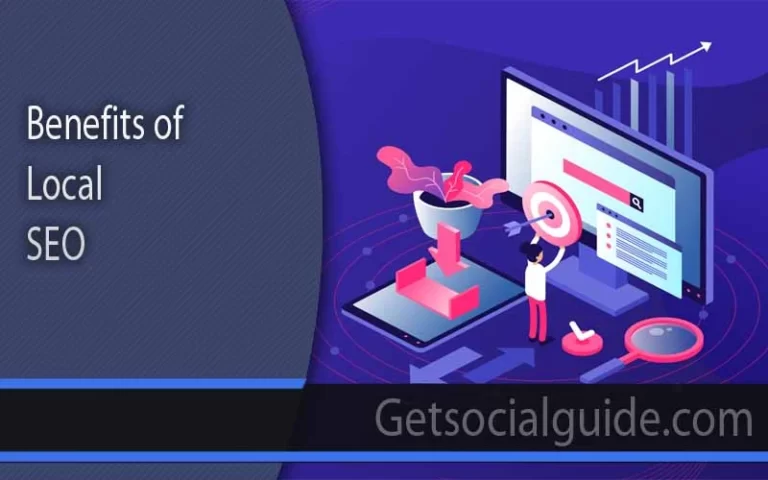Are Zero-Click Searches Killing SEO? Here’s What You Need to Know
What are zero click searches?
The number of zero-click searches is on the rise, which means that SEO professionals need to come up with new strategies that work well with the current search engine landscape. It used to be enough for you simply to have a high ranking on the Search Engine Results Pages (SERPs) to drive traffic to your site but things have changed.
Nowadays, people often find what they’re looking for right on a search results page without even visiting any websites. This has both its positives and negatives when it comes to businesses or brands.
There are various things that a website and the brand behind it can do to take advantage of these zero-click searches. First and foremost, they can be used to strengthen a company’s reputation – after all, there are several zero-click results that you can rank for.
By carefully scanning your existing website for zero-click opportunities and enriching your most prominent content, you can boost your SEO efforts and increase the chances of appearing at the top of search results. This could include optimizing your content for featured snippets, knowledge panels, or other rich results that provide users with quick answers right on the search page.
Does this sound like a good approach? If so, here’s how you can proceed:
- Conduct a thorough audit of your website’s content to identify topics and queries that lend themselves well to zero-click results.
- Optimize your content structure, headings, and formatting to make it easier for search engines to understand and extract relevant information.
- Incorporate question-and-answer formats, step-by-step instructions, and other structured data elements that search engines favor for rich results.
- Monitor your website’s performance in search results and adjust your strategy accordingly, focusing on the zero-click opportunities that yield the most visibility and engagement.
Remember, while zero-click searches may not directly drive traffic to your website, they can still play a crucial role in building brand awareness, establishing thought leadership, and ultimately attracting potential customers to your business.
By adapting to this new search landscape and embracing zero-click opportunities, you can stay ahead of the curve and ensure that your brand remains visible and relevant in the ever-evolving world of search.
What are examples of zero click searches?
Zero-click searches provide a variety of visually appealing results in various forms, all aiming to offer comprehensive answers to users. Some examples of zero-click results are:
Quick Answers
These are selected excerpts that provide the “best” answer to relatively simple questions, usually related to who, what, where, when, why, or how (5W1H). Search engines take a snippet from a web page and display it at the top of the search results, known as position zero. Additionally, the source is marked, including the website name, favicon, path, and page title. Search engines use automated systems to determine which web page has the best answer to a specific search query and display it accordingly.
Knowledge Panels
These are informative boxes that appear on the right side of search results. They appear for zero-click searches and short queries about important personalities, places, local businesses, media (TV series, books, songs, etc.), organizations, general knowledge, and much more. Queries that trigger these results are often common names or titles, such as “Coco Chanel,” “House of Cards,” “Almonds,” or “Rome.”
Knowledge panels offer crucial information directly related to the search term, usually sourced from authoritative sources like Wikipedia. In this way, search engines provide users with a quick overview of essential facts, eliminating the need to visit third-party websites. As an SEO tip, having a comprehensive Wikipedia entry for your business can boost your online visibility in multiple ways.
Search engines continuously refine their algorithms to deliver the most relevant and comprehensive results directly on the search results page, catering to the growing demand for instant gratification from users. Businesses and website owners must adapt their strategies to optimize for these zero-click opportunities, ensuring their content stands out and enhances their online presence.
Zero-click searches have undoubtedly changed the landscape of search engine optimization (SEO) and user behavior. As search engines strive to provide users with instant and comprehensive answers, the need for website clicks has diminished in certain scenarios. However, this shift presents both challenges and opportunities for businesses and website owners.
Earlier, we discussed examples like quick answers, knowledge panels, and calculators that provide direct information on the search engine results page (SERP). While these zero-click results may not drive traffic to websites, they offer an opportunity for brands to enhance their online visibility and credibility.
Search engines now leverage advanced technologies like Natural Language Processing (NLP) to understand the true intent behind user queries. As a result, popular questions are increasingly being served with zero-click searches that aim to provide users with instant, comprehensive answers. In fact, reports suggest that in 2020, nearly two-thirds of Google searches were zero-click searches, with the remaining third split between organic and paid search results.
This trend could potentially redefine the traditional concept of ranking factors, as user history, preferences, and past behavior may become less influential in shaping individualized results. Initially, many SEO companies were apprehensive about the impact of zero-click searches on their rankings and website traffic. However, forward-thinking businesses are now adapting to this new reality and exploring the SEO possibilities it presents.
While zero-click searches may not directly drive website traffic, they offer a valuable opportunity for brand visibility and credibility. For many queries that qualify for zero-click results, more than three-quarters of searches result in zero clicks. Considering that the vast majority of clicks on Google searches happen on the first page, appearing at the top of search results through zero-click opportunities can significantly enhance brand awareness and authority.
In this regard, the traditional perception of clicks and traffic as the sole measures of SEO success is being challenged. Branding is becoming increasingly important for SEO, and zero-click searches present a powerful avenue for businesses to establish their online presence and credibility.
As the search landscape continues to evolve, businesses and website owners must adapt their strategies to optimize for these zero-click opportunities. By ensuring their content is structured and formatted in a way that aligns with search engine algorithms, they can increase their chances of being featured in prominent zero-click results, ultimately enhancing their brand’s visibility and authority in the digital realm.
In 2023, SEO experts are aligning their strategies with Google’s focus on simplicity, speed, and convenience. Combining traditional SEO methods with new trends provides optimal results for website ranking and brand authority. Here are some SEO tactics to follow for zero-click search optimization:
Improve user experience (UX)
User experience has been a trending topic for years, and it’s even more crucial today. Analyze and improve the overall experience that a user has with your website and brand across different touchpoints.
Write high-quality content
Content optimization is key for zero-click searches. Your SEO efforts should concentrate on offering users exactly what they’re looking for, quickly and conveniently. Thin content or outdated tactics like keyword stuffing won’t work – quality content is becoming increasingly important. Websites must have established topical authority to rank well in zero-click or first-page results.
Format your content accordingly
While there are no magic tricks, you can format your content in a way that makes it easier for Google’s algorithms to recognize it as a high-value snippet. Assuming you’ve achieved authority on the site for a specific topic, add clear signs that your content is a great fit for zero-click results. For example, use numbered lists for tutorials, and immediately follow “What is [keyword]?” questions with “[Keyword] is…” answers.
Here are some practical tips to increase your chances of ranking for zero-click searches:
- EEAT (Experience, Expertise, Authoritativeness, Trustworthiness)
Determine your EEAT, regardless of your business’s real-life status. Careful keyword analysis can help you discover opportunities to increase your brand authority for certain topics. - Optimize for voice-based search
Voice search is growing rapidly, especially among mobile users. People seek quick, easy answers – just like with zero-click searches. Voice search results often coincide with position zero results, so use long-tail keywords that resemble natural speech. - Headlines and rich content
Conduct an SEO competitor analysis to spot significant zero-click search opportunities. Plan an SEO strategy for your high-ranking pages, changing headlines and content to match zero-click queries. Include concise information that answers common questions and adds value to encourage clicks. - Add optimized media
Support your content with impressive (and optimized) media. If your text doesn’t appear as a featured snippet, your photos might. - Numbered lists
Numbered lists can be displayed for a wide range of questions and go well with headings like “5 Ways to Increase Your Ranking” or “10 Natural Home Remedies”. They’re also used for “How” questions.
The future of zero-click searches
Zero-click searches are here to stay. The number of clicks is no longer the sole measure of success. What counts is the quality – and quantity – of the engagement. From now on, SEO will concentrate on immersive experiences that bring online audiences closer to brands in unique, imaginative ways.
Summary
Zero-click searches have transformed the SEO landscape, with search engines aiming to provide comprehensive answers directly on the search results page. While this may not drive website traffic, it presents opportunities for brand visibility and credibility.
Optimizing for zero-click searches involves improving user experience, creating high-quality content, and formatting it in a way that aligns with search engine algorithms. Key tactics include:
- Focusing on EEAT (Experience, Expertise, Authoritativeness, Trustworthiness)
- Optimizing for voice-based search using natural language
- Crafting headlines and rich content that answer common queries
- Incorporating optimized media to support content
- Using numbered lists for tutorials and “how-to” queries
- The future of SEO lies in creating immersive experiences that foster deeper connections between brands and their online audiences, rather than solely focusing on website traffic.
F.A.Q
Q. How can I determine the best zero-click opportunities for my website?
Conduct a thorough SEO competitor analysis and keyword research to identify the most relevant and high-volume queries that lend themselves to zero-click results in your industry or niche.
Q. Is it still important to drive website traffic if zero-click searches are becoming more prevalent?
While zero-click searches may not directly drive website traffic, they are crucial for building brand awareness, establishing authority, and fostering trust with your target audience – all of which can ultimately lead to increased conversions and loyalty.
Q. How often should I update my content to stay relevant for zero-click searches?
It’s essential to regularly review and update your content to ensure it remains accurate, relevant, and aligned with the latest search engine algorithms and user behavior. Aim to update your most critical content at least quarterly, or as trends and industry developments warrant.
Q. Can I optimize for zero-click searches and traditional website traffic simultaneously?
Absolutely. While the tactics for zero-click optimization differ slightly, many of the principles – such as creating high-quality, user-focused content and improving overall user experience – will benefit both zero-click visibility and traditional website traffic.
Q. How can I measure the success of my zero-click search optimization efforts?
While traditional metrics like website traffic may not be as relevant, you can track your success through increased brand visibility, higher search engine rankings for target queries, improved click-through rates (CTRs) from search results, and enhanced brand sentiment and engagement across various online channels.




Thank you. The article has taught me many new things, and I’ll definitely follow the instructions provided.